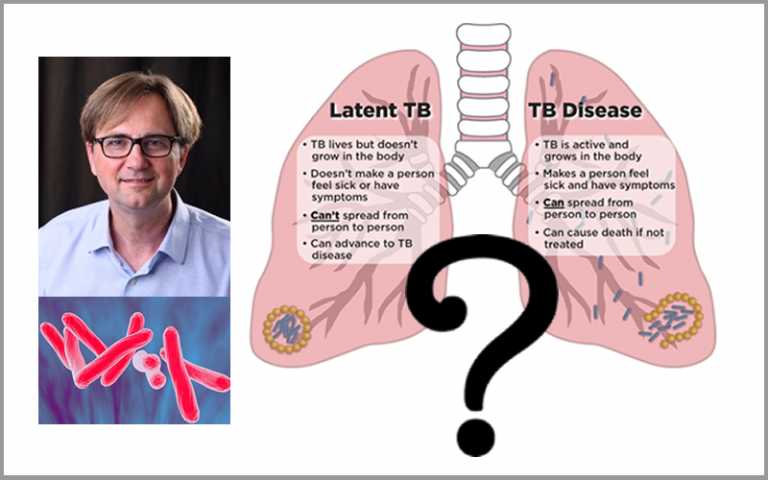UCL-TB open seminar: Professor Marcel Behr discusses Latent TB
19 May 2021, 3:00 pm–3:50 pm

"What is latent TB, and why does it matter?": Classic teaching on TB infection states that for most people, infection with Mycobacterium tuberculosis leads to a latent infection without disease. Most stay infected but disease-free for life, but for others the bacteria at some point 'wake up' and TB disease follows. New techniques are showing that this 'latent-active' way of thinking is far too simplistic.
This event is free.
Event Information
Open to
- All
Availability
- Yes
Cost
- Free
Organiser
-
UCL-TB
Despite Mycobacterium tuberculosis being among the most lethal of human pathogens throughout human history, including the present day, there is still much we are still learning about its biology, transmission and control. An astonishing quarter of the global population is thought to be infected, and thus at risk of developing disease in the future. If we can detect who is developing - or likely to develop - disease, that could transform control measures. There are now many reports where promising sets of biomarkers appear to detect subclinical disease, and this has become a fascinating but problematic area of research. This is true both technically, where many different interpretations and nomenclatures are being proposed, and ethically, at the implications of treating people without clinical disease.
After the event
The seminar was recorded , and can be watched on our YouTube channel at https://youtu.be/OJ-yYa16Ik8.
Image sources: The image of mycobacteria came from https://www.kncvtbc.org/en/about-tb/, and of the lungs came from https://hivinfo.nih.gov/understanding-hiv/fact-sheets/hiv-and-tuberculosis-tb
About the Speaker
Professor Marcel Behr
Canada Research Chair in Mycobacterial Genomics at McGill International TB Centre, Montréal
Professor Marcel Behr is a scientist/clinician who has worked on TB and other mycobacterial diseases for ~25 years. Back in 1999, He started his TB career by publishing a seminal paper that used the then new microarray technology to reveal genome-wide genetic differences between different strains of the TB vaccine, BCG. This showed that the strains had acquired multiple large and small deletions, which could be used both to show the genealogy of the strains, and also define what genes had been lost along the way and might affect vaccine efficacy. Since then, he has published ~200 papers, with major interests in BCG, molecular epidemiology, immunity and pathogenesis. He's just published an opinion piece "Latent Tuberculosis: Two Centuries of Confusion", where he argues for a change in the way we describe TB infection. He was the Founding Director of the McGill International TB Centre, where he currently works.
More about Professor Marcel Behr Close
Close

